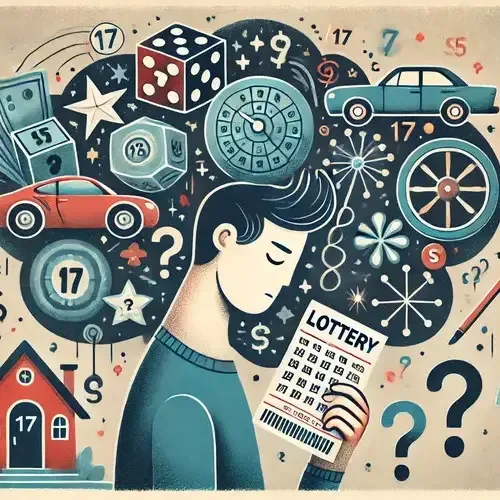
The Psychology of Playing the Lottery: What Makes Us Take Risks?
At 21 Point online casino, we understand the allure of games of chance and the thrill they bring. Among these, the lottery holds a special place, enticing millions with the promise of life-changing prizes. But what drives people to participate in these games, knowing the odds are often stacked against them? The psychology of lottery play offers intriguing insights into human behavior and risk-taking tendencies.
Why Do People Play the Lottery?
People play the lottery for various reasons, ranging from the simple enjoyment of the game to the dream of financial freedom. The prospect of winning a substantial amount of money with a relatively small investment is undoubtedly appealing. The “what if?” scenario fuels the imagination, offering a temporary escape from daily routine and financial concerns. This hope, however faint, is a powerful motivator, often outweighing the rational understanding of the slim chances of winning.
Psychological Aspects of Risk in Lottery Games
The psychology behind lottery participation can be linked to several key concepts:
- Optimism Bias: This cognitive bias leads individuals to believe they are more likely to experience positive events, such as winning the lottery, than others. Despite knowing the odds, players often think they are the exception, not the rule.
- Gambler’s Fallacy: Many lottery players fall prey to the gambler’s fallacy, the belief that past events influence future outcomes. For instance, after several draws without a win, players may believe a win is “due,” despite each draw being an independent event.
- Escapism and Fantasy: The lottery offers an escape from reality and a chance to fantasize about a different life. This escapism can be particularly appealing during stressful times or economic hardship, providing a mental break and a source of hope.
- Social Proof: Seeing others win, either through media or personal connections, can encourage participation. It creates a perception that winning is possible, even if improbable, which can spur more people to take part.
The Impact of Lotteries on Behavior and Psyche
Lotteries can have profound effects on participants’ behaviors and mental states. For some, the anticipation of the draw and the excitement of checking numbers provide a thrill that becomes a routine part of life. However, this can sometimes lead to problematic behaviors, such as excessive spending on tickets or developing a belief that winning is a solution to financial or personal issues.
The impact on mental health can be double-edged. While the hope of winning can uplift spirits, repeated losses can lead to disappointment and a sense of futility. In extreme cases, individuals may experience gambling addiction, characterized by an inability to stop playing despite negative consequences.

Strategies and Tips for Responsible Participation in Lotteries
While playing the lottery can be an enjoyable pastime, it is crucial to approach it responsibly. Here are some strategies to consider:
- Set a Budget: Determine how much you can afford to spend on lottery tickets without affecting your financial stability. Stick to this budget and treat the expenditure as entertainment, not an investment.
- Understand the Odds: Acknowledge the slim chances of winning and avoid chasing losses. Remember that the lottery is a game of chance, and no strategy can guarantee a win.
- Avoid Superstitions: Numbers are drawn randomly, and past results do not influence future outcomes. Choose numbers for fun, but don’t believe in “lucky” numbers.
- Seek Help if Needed: If playing the lottery causes financial stress or affects your mental health, seek support from friends, family, or professional counselors. Many resources are available to help manage gambling-related issues.
The psychology of playing the lottery is complex, involving a mix of optimism, escapism, and social influences. At 21 Point online casino, we encourage responsible play and understanding of the underlying psychological factors. By staying informed and setting healthy boundaries, players can enjoy the excitement of the lottery while minimizing risks. Remember, while the lottery can be a fun and thrilling experience, it should never come at the cost of your well-being.
